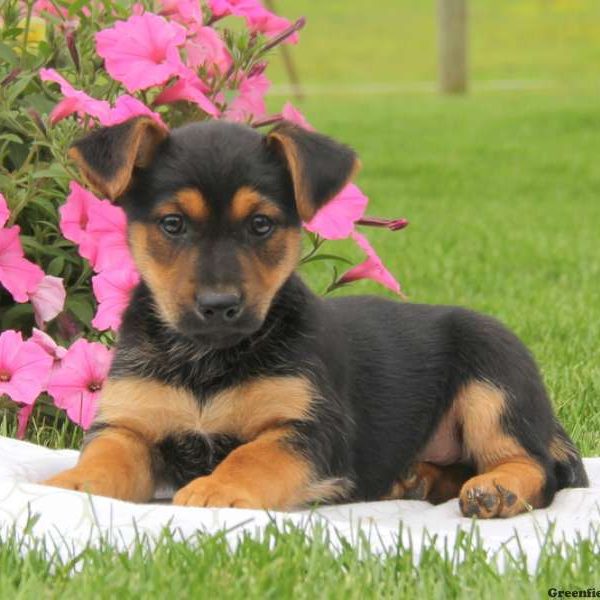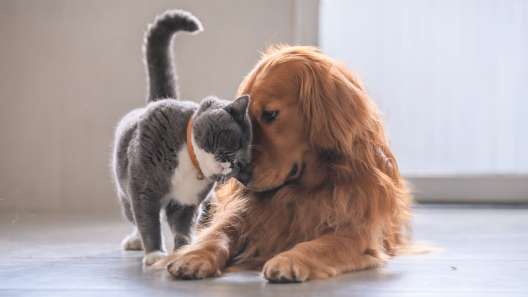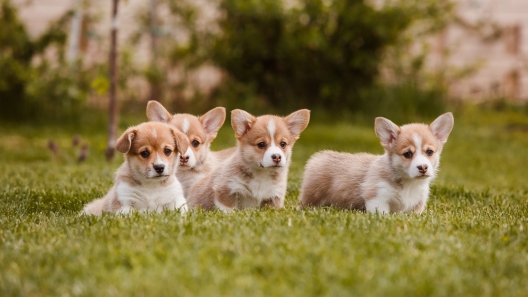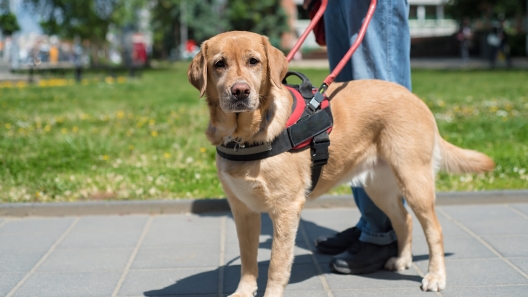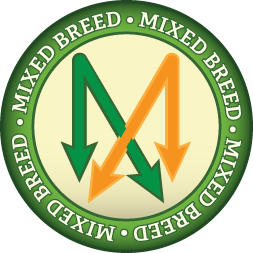
-
Activity Level:
high
-
Shedding Level:
moderate
-
Grooming Level:
moderate
-
Trainability:
moderate
-
Good for Novice Owners:
moderate
-
Adaptability:
high
-
Kid/Pet Friendly:
often
-
Prey Drive:
high
-
Watchdog:
very alert
- Average Size: Medium
- Average Lifespan: 9-13 years
Miniature German Shepherd Dog Breed Information
Overview
Temperament
Adaptability
Health
Owner Experience
Grooming
Activity Level
Size
Life Span
Did You Know?
A Miniature German Shepherd is a cross between a German Shepherd and a smaller dog breed that is meant to result in a smaller version of a German Shepherd. Common crosses include Miniature Poodles, Border Collies, and Yorkshire Terriers.
Although these Mini Shepherds can inherit any combination of traits from their parent breeds, they tend to be energetic, intelligent dogs that bond closely with their families and are affectionate with them.
Miniature German Shepherds make great family dogs. They may be hardworking while on a job, but they have a playful spirit while relaxing with their family. They also tend to get along well with children and other dogs in the family.
Although they tend to do well with smaller pets they have been raised with, they do have a high prey drive. Because of this, you’ll want to be prepared for some extra socialization and training if you have smaller pets in the household.
Mini German Shepherds are also protective and alert. They will bark to alert you and will be naturally suspicious of strangers. Proper socialization and training early on can help make sure barking does not become a nuisance and will help them open up to strangers once introduced.
Miniature German Shepherds are highly adaptable dogs. They tend to be a better fit for homes with fenced yards where they can run. But, they can adapt just as well to apartments as long as they get the exercise, mental stimulation, and attention they need.
They do well in most climates, but are sensitive to heat. Because they bond so closely with their families and want to be near them, they do not do well with long periods of alone time. Plus, they get bored easily, so you don’t want to leave them to their own devices for too long.
Mixed-breed dogs can sometimes be healthier than purebred dogs because of genetic diversity. However, this is not a guarantee. They could inherit no conditions common to the parent breeds, but they could also inherit some or all of them.
Reputable breeders will screen their dogs to make sure they aren’t passing congenital issues to puppies. So, make sure you are asking them about the health and genetic history of both of the parents. You can also ask about any health tests or clearances that have been done.
For the Miniature German Shepherd, potential health conditions to be aware of include progressive retinal atrophy, hypothyroidism, epilepsy, and hip dysplasia. Because of their body shape, they are also at risk for bloat. Because bloat in dogs can become dangerous quickly, it’s important to know how to reduce the risk and to identify the symptoms so you can get to the vet as quickly as possible.
Although Miniature German Shepherds are highly intelligent dogs that pick up on things quickly and are eager to please, they can be difficult for first-time dog owners to handle on their own. Their high energy, working dog instincts, thirst for learning, and need for structured training can be overwhelming for first-time dog owners.
Because of this, puppy training classes are recommended if you are not an experienced dog owner. Even if you don’t need them, these classes are a good idea. They help reinforce training, strengthen the bond you have with your dog, and also offer opportunities to socialize a puppy.
In general, a Miniature German Shepherd will have a coat that sheds moderately year-round and heavier seasonally. Brushing a few times a week, daily brushing during seasonal shedding, and the occasional bath is usually sufficient for this coat type.
If a Miniature German Shepherd has a Mini Poodle parent, there is a chance they could inherit the low-shedding Poodle coat. If they do, you’ll need to brush their coat every day to remove tangles and prevent mats and groom them professionally every 4-6 weeks.
In addition to coat care, you will also need to care for your Miniature German Shepherd’s nails, ears, and teeth. Cutting your dog’s nails once or twice a month is usually enough to keep them from growing too long. Weekly ear checks with careful cleanings as needed can help prevent ear infections.
Although good dental care for dogs is essential, it is often overlooked. This is one of the reasons why gum disease is one of the most common health issues in older dogs. You can help protect your pup from painful dental diseases later in life by brushing their teeth or using an enzyme toothpaste every day and keeping up with regular vet visits.
Although a Miniature German Shepherd may be smaller than a German Shepherd, they are still a high-energy dog with working dog instincts. In addition to having a job to do, these dogs also need daily walks plus playtime and time to run to be happy and healthy.
If you’re up for more activity on top of that, they likely will be too. They’ll just be happy to be active and by your side. If they like it, swimming can be a good low-impact activity while they are still growing. Once puppies finish growing, you can try higher-impact activities like hiking, running, training for dog sports, and more to see what they like.
A fully-grown Miniature German Shepherd usually stands 15-20 inches tall and weighs about 50 pounds. There can be some variation depending on the other parent breed in the cross, but meeting the mother dog in-person can give you a better idea of what size to expect in a Mini GSD.
A Miniature German Shepherd generally lives for 9-13 years.
A Mini Poodle is a common parent for a Miniature German Shepherd. If the other parent crossed with a German Shepherd is a Standard Poodle, the result is a Shepadoodle.

